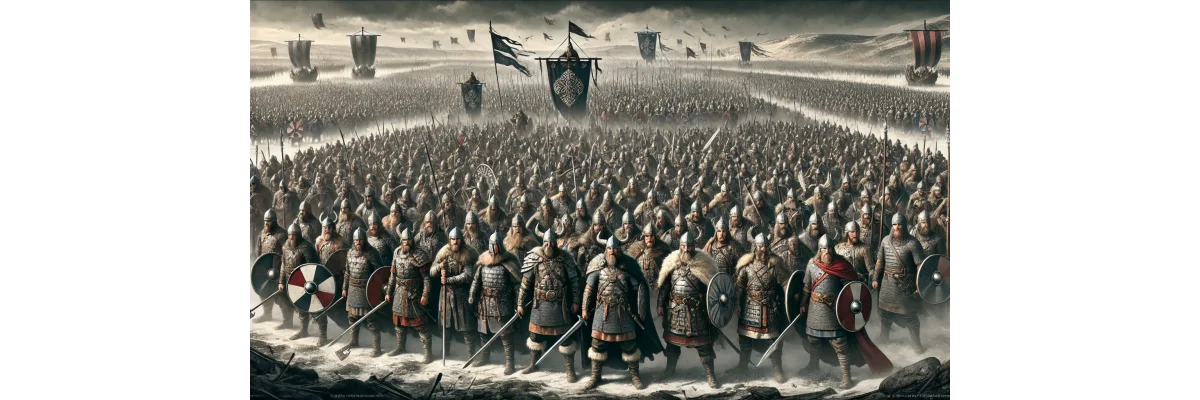The Frisians: A Germanic Tribe with a Unique Culture and History
The Frisians, a Germanic tribe with a long and eventful history, have played a significant role in shaping Europe. Their history spans from the early days of Germanic tribes to the modern era, where their language and culture persist in parts of northern Germany and the Netherlands. Known for their freedom, trade skills, and close relationship with the North Sea, the Frisians are a fascinating chapter in Germanic history.
Origins and Habitat of the Frisians
The Frisians originally inhabited the coastal regions of the North Sea, now encompassing parts of the Netherlands, Germany, and Denmark. This area, often referred to as the "Frisian Coast," was characterized by marshlands, tidal flats, and harsh climatic conditions. Despite these challenges, the Frisians developed a close connection to the sea and skillfully utilized their environment's resources.
Historical sources indicate that the Frisians were already settled in these regions during Roman times. Tacitus, the Roman historian, mentioned the Frisians in his writings, describing them as a free people adept at managing nature.
Society and Culture
Frisian society was strongly egalitarian. Unlike many other Germanic tribes, they had a well-developed system of self-governance and collective decision-making. The famous "Frisian Law," later codified, emphasized individual freedom and justice.
The Frisians were known for their independence and refusal to submit to foreign rulers. This is evident in their motto: "Better dead than a slave." Their communities were often divided into smaller settlements along the coastline and on the islands.
Economy and Trade
The location on the North Sea made the Frisians one of the most important trading peoples of their time. They were excellent seafarers and established an extensive trading network stretching across the North Sea and inland. The Frisians traded with Roman, Celtic, and other Germanic tribes. Common trade goods included amber, furs, salt, fish, and textiles.
Frisian merchants played a key role in medieval trade, especially during the Early Middle Ages. Their ships, known for their stability and seaworthiness, symbolized their maritime expertise.
Conflicts and Resistance
The Frisians had a long history of resisting foreign conquerors. During Roman times, they opposed the expansion of the Roman Empire. Later, in the Middle Ages, they fought against the Frankish kings who sought to control their territories and enforce Christianity.
Their conflict with Charlemagne is particularly notorious, as the Frisians resisted submission to the Frankish Empire. Even after their conquest, the Frisians remained rebellious and held onto their traditional values and laws.
Religion and Mythology
Like many Germanic tribes, the Frisians worshipped a variety of gods associated with natural forces and aspects of daily life. Odin (Wodan) and Thor (Donar) were prominent figures in their religious practices. With the Christianization of the region, many pagan customs were integrated into Christianity, but traces of the old religion remain in folk songs and legends.
The Frisians Today
The culture and identity of the Frisians persist in modern regions like Friesland (Netherlands), East Frisia, and North Frisia (Germany). The Frisian language, part of the West Germanic language family, is still spoken by some communities and remains a vital part of their cultural identity.
Modern Frisians celebrate their history and traditions through festivals, museums, and cultural events. The Frisian spirit of freedom and independence remains a hallmark of their culture.
Conclusion: A Proud Germanic Tribe
The Frisians are a unique part of Germanic history. Their freedom, trade expertise, and cultural achievements have made them an essential part of European history. As a proud people who faced the challenges of nature and foreign conquerors, the Frisians left an indelible mark on history.

 German
German














